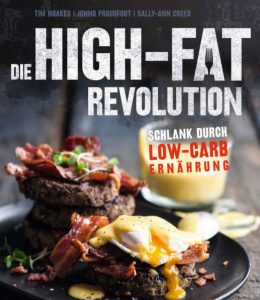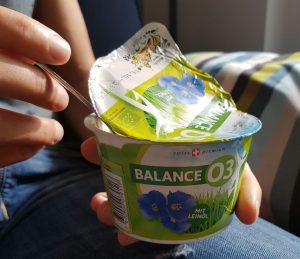Hi Guys,
I've been playing around with my daily diet for the past few months. The main reason was that after a long break I was always annoyed that I had to work off 5-6kg again before I slowly got back to a good training speed. It is always written big and broad about it, so please take this as my personal recommendation and not as an official one. Otherwise, that will again call advocates of all possible types of nutrition on the scene. It is intended for the athletes who always carry around a few kg too much.
I have had the best experience with reducing carbohydrates (KH). The more training you add, the more you have to know your body to know how much KH you need to maintain the quality of your training. When I was 20 or 25 I didn't have to worry about it. The body burned everything that was poured into it. I have just come back from a year-long off-season in which I only trained sporadically, as I pleased, and did not compete. During this phase, a high-fat / low-carb (HFLC) diet helped me wonderfully.
 I usually do this 4-5 days in a row and then once a week is “mud day”, where I also eat sweets and all sorts of things. So good for the soul and also necessary to replenish the empty glycogen stores. So I reward myself regularly and don't have the feeling of being scourged.
I usually do this 4-5 days in a row and then once a week is “mud day”, where I also eat sweets and all sorts of things. So good for the soul and also necessary to replenish the empty glycogen stores. So I reward myself regularly and don't have the feeling of being scourged.
The result, I was practically permanently at competition weight, despite only training 3-4 hours a week. Due to the high fat content, you are hardly hungry and 2 meals a day are sufficient. It is like a positive reinforcing feedback loop, the longer you are in it, the more you get used to it. When my grandmother-in-law has Schäuferle (Franconian crust roast), I usually eat 2 pieces and am so full that I won't eat the next time until 24 hours later.
That's roughly how it works. Disadvantage: you need discipline in the beginning and of course in the middle. The longer you do it, the less of it it takes. But the initial discipline alone makes people's 95% fail, I would now guess.
If there is more training now, then of course the KH share should also go up. Because the quality of the training always comes first! Here I always eat my carbohydrates in close proximity to the units, ie shortly before, in the middle (the stomach gets used to digesting during exercise) or immediately afterwards. The rest of the time I switch back to the HFLC diet. Here it takes a bit of sensitivity to determine how much KH you need personally. Try out!
So what is he eating right then? Personally, for example, I make myself a pan early in the morning, sautéed vegetables with butter, put 1-2 salmon fillets in and nice cheese over it to bake. Or in the evening chilli with a few beans, more vegetables and minced meat. There are of course also vegetarian variants with eggs or broccoli (30% consists of protein). A huge salad with mozzarella and / or prawns.
 Everything that tastes good is allowed. One of the most important points, otherwise you won't go through long. The proportion of vegetables can be as high as you want. In between a few olives, nuts or delicious quark like that from O3. Whatever is possible is dark chocolate (> 75% cocoa content) or coconut chips. When it comes to chocolate, don't try the 99%ige straight away, you need a sip of water for each piece, the 😉 is that dry
Everything that tastes good is allowed. One of the most important points, otherwise you won't go through long. The proportion of vegetables can be as high as you want. In between a few olives, nuts or delicious quark like that from O3. Whatever is possible is dark chocolate (> 75% cocoa content) or coconut chips. When it comes to chocolate, don't try the 99%ige straight away, you need a sip of water for each piece, the 😉 is that dry
I can recommend the book by Tim Noakes. The runner-up par excellence (Lore of Running), that's why I bought his book, because as a trainer and athlete he comes across as authentic. Even if many of the recipes take too much time for me, the book is worth it just because of the explanatory chapters, which make up about 1/3 of the book. Then the principle is understood and you have all the means at hand that you need to optimize your weight at any time.
skin in!
your krelli

